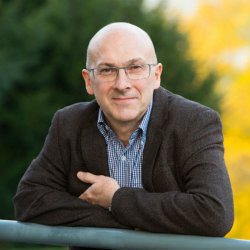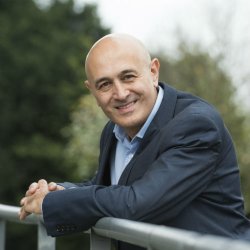Noise and memory in open quantum systems
This PhD studentship is in open quantum systems theory. The project is part of a larger research effort in the field of open quantum systems, quantum thermodynamics, and quantum biology.
Start date
1 October 2022Duration
3 yearsApplication deadline
Funding information
Full UK tuition fees and a tax-free stipend at £15,609 p.a. This studentship may be available with partial funding for overseas fees for exceptional applicants. However, funding for overseas students is limited and applicants are encouraged to find suitable funding themselves.
About
Quantum effects and biological systems seem to be at odds with each other. Quantum effects, such as coherence, tunnelling and entanglement, are typically confined to systems at low temperatures and little interaction with the environment. In contrast biological systems are naturally warm, and strongly coupled with their own environment. However, it has recently emerged that quantum phenomena may be at the base of a number of biological processes (see [1] for a review), begging the question on how quantum effects can survive on biologically relevant timescales.
Based on an open quantum system approach being developed at Surrey [2], this work will explore the quantum features of a system of interest coupled to an environment, in the case when the latter is affected by stochastic fluctuations. Questions of interest will concern the derivation of reduced dynamics of the quantum systems, and the connection with known effective stochastic descriptions of quantum mechanics, for instance in terms of stochastic Schroedinger equations [3]. Thermodynamic properties will be also investigated, such as the impact of environmental noise on the fluctuations-dissipation relations, and the resulting classical limit.
The project is part of larger project conducted at Surrey to investigate from first principles the dynamics of quantum systems in interaction with their surroundings, the emergence of macroscopic irreversibility, and the repercussions of this in the broad field of quantum biology.
[1] Jim Al-Khalili and Johnjoe McFadden, Life on the Edge: The Coming of Age of Quantum Biology, Transworld (Bantam Press), London (2014).
[2] S. Lally, N. Werren, J. Al-Khalili, and A. Rocco, Master equation for non-Markovian quantum Brownian motion: The emergence of lateral coherences, Phys. Rev. A105, 012209 (2022).
[3] W.T. Strunz, Stochastic path integrals and open quantum systems, Phys. Rev. A54, 2664 (1996).
Related links
Quantum arrow of time research project Leverhulme Quantum Biology Doctoral Training Centre (QB-DTC)Eligibility criteria
Applicants need to hold or will obtain a first-class Honours degree in Physics (MPhys/MSci encouraged) or a 2.1 alongside a Masters in physics at Distinction level.
English language requirements
IELTS minimum 6.5 or above (or equivalent), with no sub-test score below 6.
How to apply
Applications should be submitted via the Physics PhD programme page on the "Apply" tab. Please clearly state the studentship title and supervisor on your application.
Studentship FAQs
Read our studentship FAQs to find out more about applying and funding.
Application deadline
Contact details
Research
Research group: Quantum Foundations Centre

Studentships at Surrey
We have a wide range of studentship opportunities available.

